 |
|||||||||




 |
|||||||||




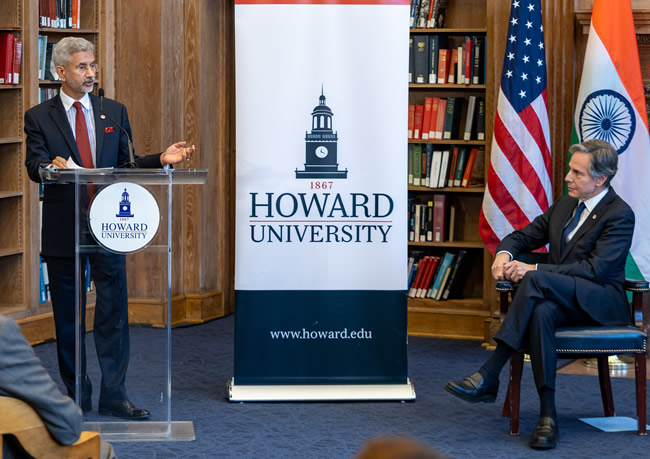
Photo: Secretary of State Antony J. Blinken and Indian External Affairs Minister Dr. S. Jaishankar deliver remarks and participate in a conversation with Howard University students, faculty, and leadership as part of the U.S.-India Higher Education Discussion in Washington, D.C. on April 12, 2022 [State Department Photo by Ronny Przysucha].
Source: U.S. Department of State
|GlobalGiants.Com|
Edited & Posted by the Editor | 8:19 AM | View the original post
The VP calls for innovative business models to address everyday problems ordinary people face.
Says the ultimate goal of a policy, innovation, or institution is to make ordinary people’s lives happier.
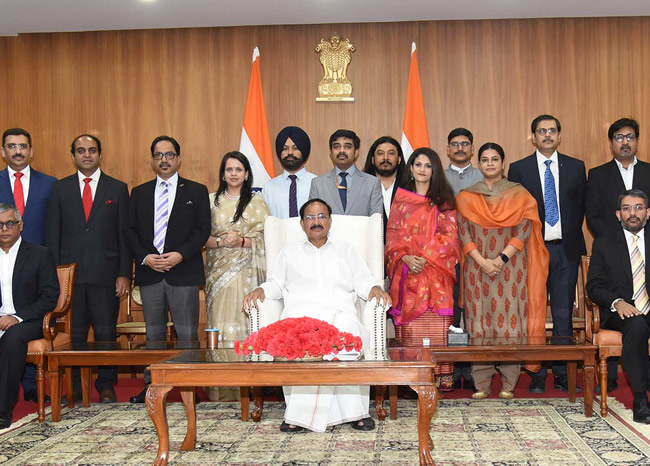
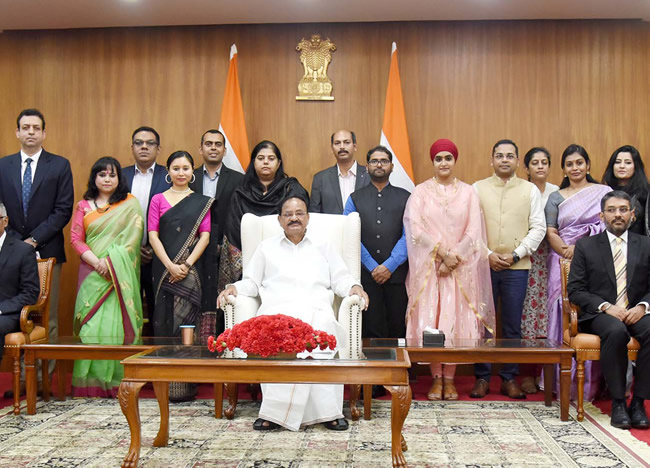
Photos: The Vice President of India, Shri M. Venkaiah Naidu, during an interaction with the participants of the ”Advanced Management Programme in Public Policy” conducted by the Indian School of Business (ISB) in New Delhi.
New Delhi, April 10, 2022 — The Vice President of India, Shri M. Venkaiah Naidu, has highlighted the importance of evidence-based policymaking to ensure that governance is responsive to the changes and disruptions around us. He also called for constant rethink and readjustment of policies and programs as per emerging needs and requirements.
The Vice President recently interacted with the participants of the Indian School of Business (ISB)’s Advanced Management Programme in Public Policy. He called for developing innovative business models to find solutions to everyday problems ordinary people face, such as solid waste management or monetization of crop waste to help farmers check air pollution.
Quoting the World Bank and IMF projections of the high growth rate of the Indian economy, the Vice President underlined that the country holds tremendous potential and opportunities for entrepreneurs and investors. “To bring about the desired change, it is important that the government and private sector work together and build a better and stronger India,” he said.
Talking about the rapid pace of urbanization in India, the Vice President said it presents its challenges and opportunities. “Our policymakers will have to ensure that urban citizens have access to affordable housing, education, and healthcare,” he added, urging all states and the private sector to make the cities vibrant and inclusive living spaces.
The Vice President called for bridging the urban, rural divide and said that ”we must make efforts to make people in rural areas feel included as part of the developmental journey of the country”.
Underlining that the ultimate goal of any policy, innovation, or institution is to make people’s lives happier and more comfortable, Shri Naidu called for increasing people’s participation in governance and policy formulation. In addition, the Vice President called for dynamism in policymaking and administration, emphasizing the importance of the ”delivery” component of public services.
He appreciated the Indian School of Business for conducting the course with a particular focus on Public Policy. The study titled - ”Advanced Management Programme in Public Policy” is meant to hone the managerial skills of the working professionals in the public and private sectors. The Vice President expressed hope that a mixed batch of private and public sector mid-career students will help in cross-learning from each other.
Professor Madan Pillutla, Dean, Indian School of Business, Mr. DNV Kumara Guru, Director - External Relations, Indian School of Business, senior officials, and ISB Public Policy program participants were present.
Source: The Vice President’s Secretariat, New Delhi
|GlobalGiants.Com|
Edited & Posted by the Editor | 11:09 AM | View the original post
— Fund to Enable HBS to Attract Students with Highest Potential for Leadership.
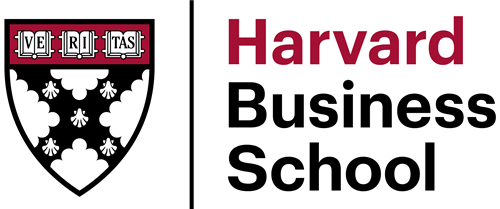
BOSTON, April 7, 2022 — Harvard Business School (HBS) has announced the establishment of the Robert K. Kraft Family Fellowship Fund, which will benefit promising young leaders with high potential but limited means to attend HBS. The fund is made possible through the generosity of HBS alumni Robert Kraft (MBA 1965), founder, chairman, and CEO of both the Kraft Group and the Kraft Family Foundation, and his son Jonathan (MBA 1990), president of the Kraft Group.
By creating the largest endowed fellowship fund of $24 million at the School, the Kraft family continues their longstanding commitment to and support of fellowship programs at HBS. The fund was first announced earlier today at an event held at the School, “Improving Opportunity through Increasing Access: A Real-Life Story and A Legacy of Educating Leaders—A Chat with Dean Datar & Robert K. Kraft.”
The Robert K. Kraft Family Fellowship Fund will make the transformational educational experience of HBS more accessible to talented students who, without financial aid, would be unable to attend the MBA program. It will specifically support students from lower socioeconomic backgrounds who are first-generation college students or from other underrepresented student backgrounds. In recognition of the Krafts’ support, the School has named the Financial Aid Office and Director of MBA Financial Aid position in their family’s honor.
“Harvard Business School has a long and proud history of educating leaders who make a difference in the world, like Robert and Jonathan Kraft,” said Harvard President Lawrence S. Bacow. “Through this extraordinary act of philanthropy, father and son ensure that more lives are transformed as theirs have been. The University is grateful for their generosity and the deep care with which they support the members of our community.”
“Being part of HBS changed my life, and I am deeply grateful for the chance to help others benefit from the transformational power of this experience,” said Robert Kraft. “Our family is proud of the extraordinary difference that our fellowship recipients make in the world.”
The Robert K. Kraft Family Fellowship Fund advances the School’s commitment to making the MBA program more affordable and accessible.
“As HBS strives to ensure that a business is a force for good in society, it is increasingly important to educate leaders who anticipate the impact of their decisions on employees, customers, and their communities,” noted HBS Dean Srikant Datar. “Having the voices of fellow students from various cultures, industries, and socioeconomic backgrounds in the classroom broadens everyone’s perspectives on the real-world challenges they will face as business leaders. We can only foster this environment through the generous support of fellowships by leaders like Robert and Jonathan Kraft.”
Founded in 1908 as part of Harvard University, Harvard Business School is located on a 40-acre campus in Boston. Its faculty of more than 200 offers full-time programs leading to the MBA and doctoral degrees, more than 70 open enrollment Executive Education programs, 55 custom programs, and HBX, the School’s digital learning platform. For more than a century, HBS faculty have shaped the practice of business and entrepreneurship around the globe through their research, experience in working with organizations worldwide, and passion for teaching leaders who make a difference in the world.
Source: Harvard Business School
|GlobalGiants.Com|
Edited & Posted by the Editor | 11:10 AM | View the original post

LONDON, April 6, 2022 — QS Quacquarelli Symonds - the international higher education think-tank - released the twelfth edition of the QS World University Rankings by Subject: an independent comparative analysis of the performance of 15,200 individual university programs  taken by students at  1543 universities in  88 locations worldwide  across 51 academic disciplines. They are part of the annual QS World University Rankings portfolio.
QS World University Rankings by Subject 2022
• Number of Programs getting Top-10 Ranking
• Global Highlights
US institutions lead in 28 of the 51 subjects ranked. Harvard University and MIT remain the strongest-performing institutions, ranking number one in twelve subjects.
Fifteen subject tables are topped by a British university, with the University of Oxford leading in six.
ETH Zurich is continental Europe’s top university, achieving number-one spots in three subjects. Moreover, based on its share of top-10 ranks, Switzerland is the world’s third-best higher education sector.
Australia is the fourth most represented country for the number of entries
China (Mainland) ranks fifth globally for the number of programs (100), achieving a top-50 rank.
No university has a larger number of top-50 than Canada’s University of Toronto (46).
The National University of Singapore - Asia’s best-performing university - is the world’s best for Petroleum Engineering. NUS ranks among the top-10 in sixteen disciplines.
Japanese higher education is still declining after decades of underfunding for research and Ph.D. students.
Universidad de Chile achieves Latin America’s highest rank, 8th globally in Engineering Mineral & Mining, followed by UNAM (Mexico) 13th in Modern Languages and Universidade de São Paulo (USP) 15th in Dentistry.
The University of Cape Town remains Africa’s most competitive institution, placing 9th globally in Development Studies.
King Fahd University of Petroleum & Minerals, 6th globally for Petroleum Engineering, achieves the Arab region’s highest rank.
Ben Sowter, QS Research Director, said: “Observing performance trends across over 15,000 university departments enables us to see which factors influence success. First, an international outlook - both in terms of faculty body and research relationships - correlates strongly with improved performance. Second, rising universities received targeted investment from governments for over a decade. Third, strengthening relationships with industry correlates with better employment, research, and innovation outcomes.”
Source: QS Quacquarelli Symonds
|GlobalGiants.Com|
Edited & Posted by the Editor | 1:13 AM | View the original post

Photo: Arizona State University students Sylvia Lopez and Brinlee Kidd were named Red Bull Basement Global Final winners.

ISTANBUL, March 30, 2022 — Inspiration was in the air as finalist teams from universities worldwide converged in Istanbul to pitch their ingenious ideas at the Red Bull Basement Global climax Final 2021.
The program empowers student innovators to kickstart their ideas to drive a positive impact on campus and disrupt the world tomorrow. While the Arizona State University team made the biggest impression with their “Jotted” idea, the four-day collaboration revealed ingenious concepts for everything from climate action to career tools.
Red Bull Basement received more than 4,000 applications worldwide. It was a new high, and in all, 44 finalist teams from 43 countries worked for months to bring their ideas to life. The vast majority of the finalists attended the Global Final in person, with a handful participating virtually.
The event in Istanbul was an immersive experience that allowed the student teams to network and engage in workshops with visionary thought leaders. The sessions in the schedule packed with opportunities included:
Keynote speech and a Q&A session featuring Kudzi Chikumbu. Chikumbu is a community leader and a creator at one of the world’s most comprehensive entertainment short-form video platforms.
Workshop on digital storytelling and social media with SuperSocial founder Mathias Haas
Surprise parkour and freerunning workshop with inspirational Turkish athlete Hazal Nehir, who sees her sport as a tool for self-recognition (see the video below)
The event concluded with the top 10 teams making their final pitch to a judging panel of prominent global visionaries. Again, the winning Jotted idea from Arizona State University made a deep impression. Brinlee Kidd and Sylvia Lopez are developing an automated, real-time note-taking tool that generates flashcards and creates practice quizzes. The students believe that Jotted could revolutionize how people find and aggregate knowledge worldwide. The team will now benefit from additional resources and contacts to fully bring their idea to reality.
Describing their experience at the Global Final, the Jotted teammates said, “Everybody wins when you come here. The people we’ve met are some of the best and brightest in the world - so exciting and interesting and active. With the things that we learned, from the business point of view and the technical perspective, we feel much more confident moving forward in our venture. We’re turning a new page in an incredible book, and we’re excited to go on this journey.”
Rounding out the top 10 were:
Circle One (IMC University of Applied Sciences Krems), a reusable packaging solution for online retail orders;
Digital X-Ray Glasses (University of Johannesburg), eyeglasses that perform and transmit x-ray scans;
H2Whoah (University of Manitoba), a consumer app that monitors water usage;
NCMS (Mie University), a new take on noise-canceling headphones;
OpenGrid (University of Melbourne), a platform that would enable households using solar power to sell their excess energy to other homes;
Smart Capacit System (Hotelschool The Hague), an energy-saving scheduling system for digital devices;
Starry Light Tiles (Loughborough University), walkway tiles that light up pedestrian pathways when stepped upon;
Vego (University of A Coruña), an app that helps users transition to a vegan lifestyle;
“Wrest,” an intelligent mousepad designed to help users avert repetitive motion injuries by the Faculty of Medicine at Charles University.
Most ideas focused on categories based on the United Nations Sustainable Development Goals. The top three focus areas were Education, Smart Cities, and Body & Mind.
Following events in Berlin (2018) and Toronto (2019) and a virtual Global Workshop in 2020, the Red Bull Basement Global Final in Istanbul was much awaited.
Over the years, Red Bull Basement participants have gone on to realize their ideas for global impact. For example, the winning team from 2019, “Audvice,” has made significant strides, receiving six-figure funding for their learning and collaboration tool in the first investment round. While the 2020 winners Lylo are now working to bring their ecologically friendly reinvention of the clothes washing machine to market.
Red Bull Basement’s Global Partners include NTT, Intel, and Porsche.
Source: Red Bull
|GlobalGiants.Com|
Parkour with Hazal Nehir
Parkour is an athletic training discipline where practitioners attempt to get from point A to point B in the most fluid, fastest, and most efficient way without any assisting equipment.
Edited & Posted by the Editor | 4:11 AM | View the original post

Photo: Trade Buildings. Barcelona, Spain. Barcelona is the venue of the World Higher Education Conference (WHEC2022) from May 18 to May 20, 2022. Image Credit: Josep Maria Torra.
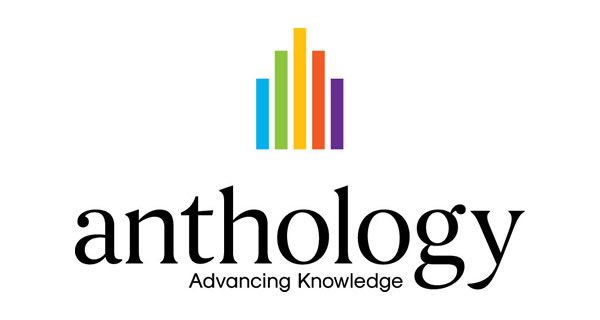
BOCA RATON, Fla. and PARIS, March 28, 2022— Anthology, a leading provider of education solutions that support the entire learner lifecycle, and the United Nations Educational, Scientific and Cultural Organization (UNESCO) have announced Anthology’s sponsorship for the World Higher Education Conference (WHEC2022). The conference takes place in Barcelona, Spain, from March 18, 2022, to March 20, 2022.
UNESCO and Blackboard, now part of Anthology, initially formed a partnership to support global digital learning initiatives in 2020. This flagship higher education event, held only once each decade, marks the organizations’ continued collaboration to help define the future of higher education.
The UNESCO World Higher Education Conference aims to break away from traditional models of higher education and open doors to new, innovative, creative, and visionary conceptions that serve current agendas for sustainable development and pave the way for future learning communities. The WHEC2022 will gather representatives from the worldwide higher education ecosystem, from academics to political leaders and youth, to reshape the ideas and practices in higher education for a more sustainable future. More than 2,000 in-person attendees and 10,000 virtual attendees would convene for this year’s event.
“We are honored to participate in such a momentous event and have a voice in the global conversation about the future of higher education,” said Jim Milton, Anthology Chairman and CEO. “There is an incredible synergy between the work UNESCO is leading and our vision of creating an inspiring and infinite world of learning without boundaries. We look forward to our continued partnership as we seek the best outcomes for learners and leaders across the education community.”
“The third World Higher Education Conference will concentrate on higher education as an agent of social change to contribute to leaving no one behind in higher ed,” said Mr. Peter Wells, UNESCO Chief of Higher Education. “Anthology’s dedication to supporting the entire learning lifecycle for students of all backgrounds makes them an excellent partner for UNESCO, both for this event and future.”
“Anthology” offers the largest EdTech ecosystem globally for education, recently combining with Blackboard to support more than 150 million users in 80 countries. With a mission to provide dynamic, data-informed experiences to the global education community, Anthology helps learners, leaders, and educators achieve their goals through over 60 SaaS products and services designed to advance learning.
UNESCO is the only United Nations agency with a mandate to cover all aspects of education. The organization believes that education is a human right and that access must match quality. Its work encompasses educational development from pre-school to higher education and beyond.
Source: Anthology
|GlobalGiants.Com|
— The Editor is a GPE/UNESCO/IIEP trained “Independent Appraiser” of Education Sector Plans.
Edited & Posted by the Editor | 3:20 PM | View the original post

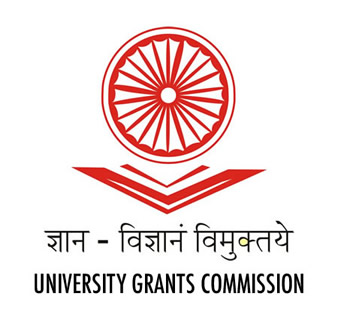
New Delhi — University Grants Commission (UGC) India has prepared “Draft Guidelines for transforming Higher Education Institutions (HEIs) into Multidisciplinary Institutions” and has invited feedback from the Stakeholders.
According to UGC, this program is the follow-up of the National Education Policy (NEP) 2020, which aims to control the fragmentation of Higher Education by transforming Higher Education Institutions into Multi-disciplinary Universities, Colleges, Clusters, and Knowledge Hubs.
The UGC Draft Guidelines have classified Multi-disciplinary Institutions into three Types:
Multi-disciplinary research-intensive Universities (RUs)
Multi-disciplinary teaching-intensive Universities (TUs)
Degree-awarding, Multi-disciplinary Autonomous Colleges
Under the current structure, teaching takes place through colleges affiliated with universities. Universities design syllabi, conduct examinations, and award degrees. Whereas NEP 2020 recommends the transformation of all HEIs into large multi-disciplinary degree-awarding autonomous institutions.
Therefore, the UGC Draft Guidelines have outlined the procedure and rules for consolidating existing HEIs into multi-disciplinary degree-granting independent colleges through cooperation and collaboration. Under this arrangement, students enrolled in an HEI can take up the first degree at the host institution and the second degree at the partnering institution leading to a dual degree.
Further, single-stream institutions would be able to integrate their programs with nearby multi-disciplinary institutions to enhance their curricula. In addition, the existing multi-disciplinary HEIs would be free to seek collaboration to expand further and add more programs.
The UGC Draft Guidelines elaborate on how such a new and unexplored educational architecture will help strengthen the structure of multi-disciplinary education and achieve the vision of the National Education Policy (NEP) 2020.
UGC has invited the stakeholders to provide feedback on its Draft Guidelines for transforming Higher Education Institutions (HEIs) into Multidisciplinary Institutions.
Source: UGC India
|GlobalGiants.Com|
UPDATE
UGC Public Notice about Common University Entrance Test (CUET)
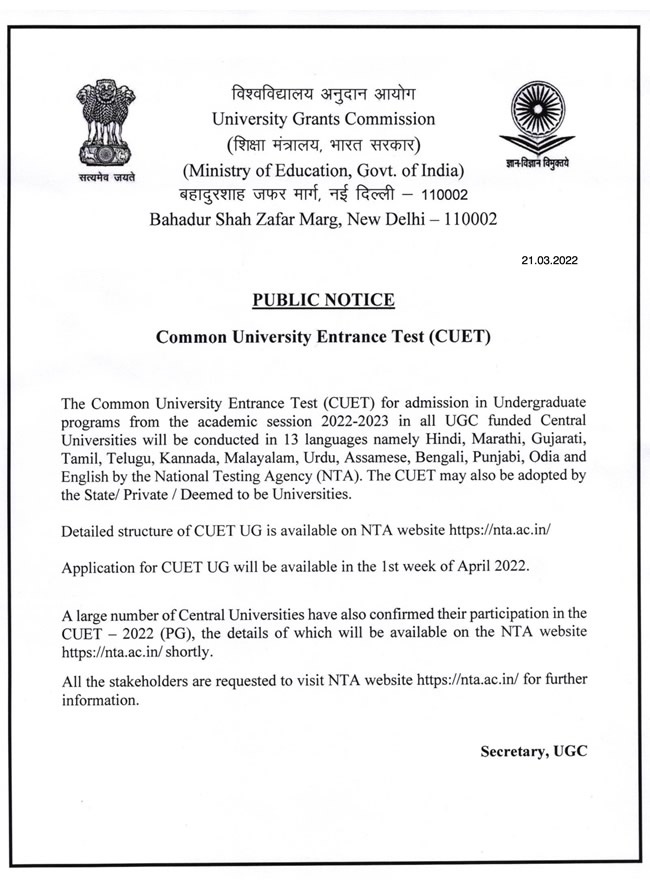
UPDATE
UGC Public Notice concerning Violations by a University in running distance education programs without approval of UGC.
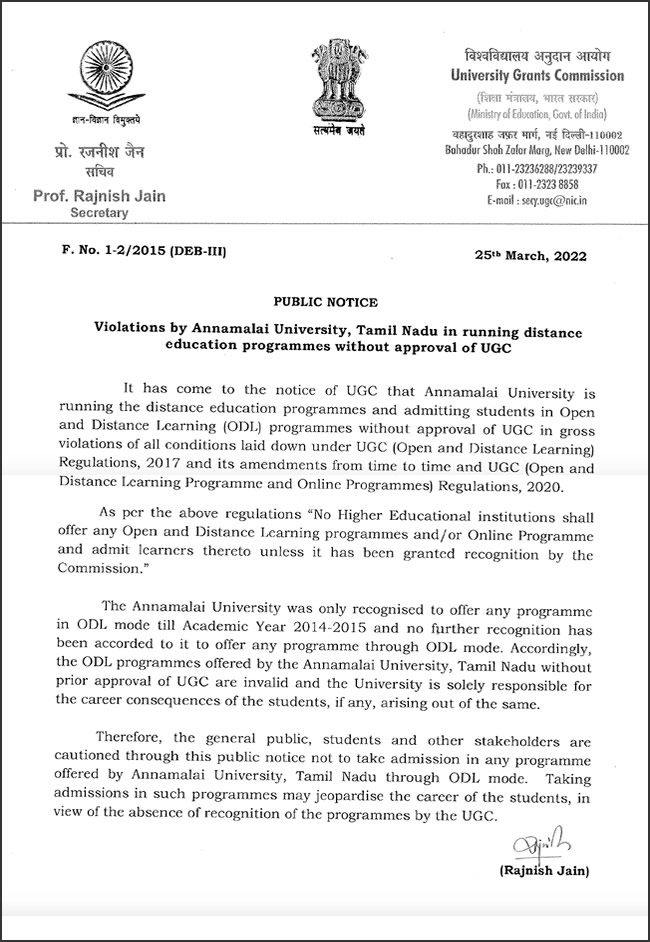
Edited & Posted by the Editor | 1:28 PM | View the original post
Applications Open Today for First-Of-Its-Kind Scholarship that will fund Master’s and Doctoral Degrees for 100 Exceptional STEM Fellows from the Quad Nations
Fellows Will Receive Access to Unparalleled Benefits Including Tuition Support, Learning Workshops, Mentorship by STEM Leaders, and Cross-Cultural Exchange Experiences
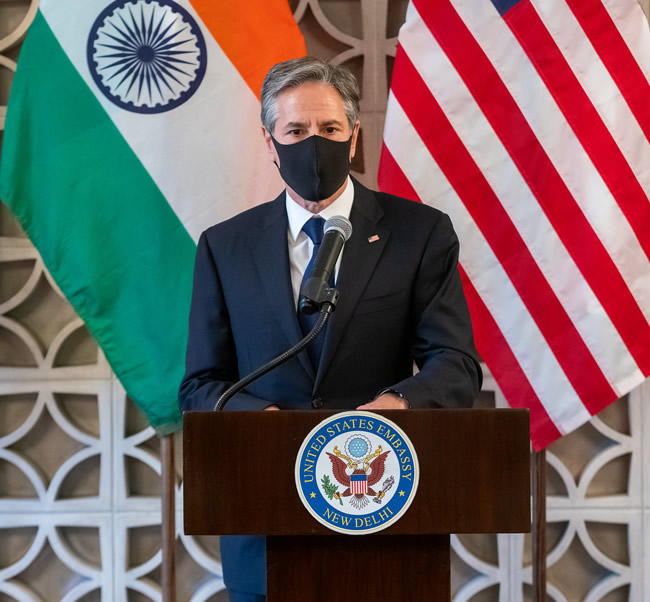
Photo: Secretary of State Antony J. Blinken holds a meet and greet with U.S. Mission India in New Delhi, India, on July 28, 2021. [State Department photo by Ron Przysucha] [File Photo]

NEW YORK, March 17, 2022 — Schmidt Futures announced today that applications are open for the Quad Fellowship. A first-of-its-kind scholarship supporting master’s and doctoral students in STEM, the program is designed to spur scientific and technological innovation while building global ties among the next generation of scientists and technologists.
The Quad Fellowship is a joint initiative of the governments of Australia, India, Japan, and the United States. It is the flagship educational exchange program of the Quadrilateral Security Dialogue. Operated and administered by Schmidt Futures, the Fellowship will sponsor 100 exceptional American, Japanese, Australian, and Indian graduate students in science, technology, engineering, and mathematics (STEM) to study in the United States beginning in August 2023.
“We will see more technological change in the next ten years than we saw in the last fifty,” said U.S. President Joe Biden. “We want the next generation of scientists and technologists who will build the future to come from our Quad countries. So together, we’re launching the new scholarship program to support STEM students in each of our countries and strengthen the collaboration among our people. It’s called the Quad Fellowship.”
The Fellowship will develop a network of science and technology experts committed to advancing innovation and collaboration in their nations’ private, public, and academic sectors and among Quad countries. Over 18 months of programming, Quad Fellows will receive academic support and have the opportunity to learn from leading scientists, technologists, politicians, and more from the Quad nations. Just as crucial, the program will build a foundational understanding among Quad Fellows of one another’s societies and cultures through robust community programming and cultural immersion experiences.
“We were honored to accept the invitation to lead and administer the Quad Fellowship,” said Eric Braverman, CEO of Schmidt Futures. “It is a philanthropic initiative founded by Eric and Wendy Schmidt that bets early on exceptional people making the world better. We believe that identifying and connecting talent through interdisciplinary STEM programs like this one is crucial to advancing world-changing innovation and solving our greatest challenges.”
“At the heart of the future, we see science and technology, engineering and math, because they have always been at the forefront of advancing progress and answering a human need,” said Australia’s Prime Minister Scott Morrison. “It’s a fellowship that will create new connections and helps identify solutions to some of the most pressing challenges we face across our region and the world.”
“The most important driving force in the world will be the technology for the service and the use of humanity,” said India’s Prime Minister, Narendra Modi. “Our Quad will play the role of a force for global good, and our cooperation under Quad will ensure prosperity and peace in the Indo-Pacific and the world.”
“I have great expectations that participants will become a “bridge” connecting the four countries, and will be the driving force for growth, helping to resolve issues arising in the Indo-Pacific region and around the world,” said Japan’s Prime Minister Fumio Kishida.
All Quad Fellows will receive access to the following benefits and participate in the following programs upon selection:
Funding: Quad Fellows will receive a one-time, personal award of $50,000 for study in STEM master and doctoral programs in the United States. Fellows can apply separately for additional, needs-based funding up to $25,000 to support the completion of their academic study subject to conditions.
Programming: Quad Fellows will participate in regular virtual and in-person workshops on various themes, including the intersection of STEM and society, ethics and innovation, and emerging technologies. Fellows will also benefit from small-group research and support networks.
Mentorship: Quad Fellows will connect with top scientists, technologists, and national leaders from Quad countries, providing unparalleled opportunities for networking and mentorship.
Cross-Cultural Exchange: Quad Fellows will build lifelong connections within an international network of STEM innovators through flagship international experiences, including a week-long residency in Australia, Japan, or India, a weekend summit in Washington, D.C., and other in-country immersion offerings.
An International Advisory Board composed of leaders from academia, government, business, and civil society will guide Quad Fellowship selection, programming, and immersion experiences. Members include
Quad Fellowships would announce additional members of the International Advisory Board later.
Many leading corporate sponsors support the Quad Fellowship. Founding sponsors include Accenture, Blackstone, Boeing, Google, Mastercard, and Western Digital.
Source: Schmidt Futures
|GlobalGiants.Com|
Edited & Posted by the Editor | 2:45 AM | View the original post
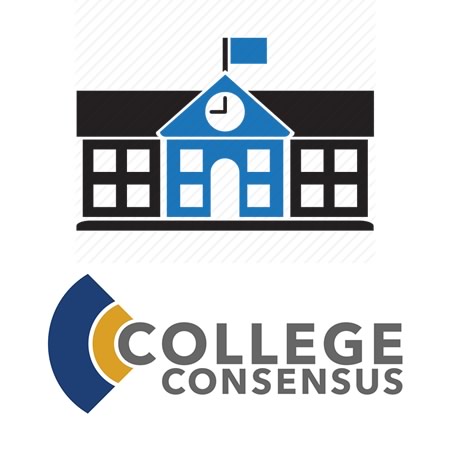
HILLSBOROUGH, N.C., March 17, 2022 — College Consensus, a college ratings website aggregating publisher rankings and student reviews, has ranked the 100 Best Value Colleges & Universities for 2022 in the USA.
Tuition has outpaced both inflation and financial aid, and 70% of college students say that finances played a role in their college decision. As a result, many students take out hefty student loans that require a lifetime of repayment to afford college.
With student debt at an all-time high, more students than ever are looking for quality education at an affordable cost.
Thankfully, many colleges and universities are working to increase their affordability, providing great educational value at low tuition rates. The Top 100 Best Value Colleges & Universities offer students the chance to graduate with an impressive degree in their hands and money in their wallets.
College Consensus explains that to determine the 50 Best Value Online Colleges, it combined the results of the most respected college ranking systems with the averaged ratings of thousands of genuine student reviews from around the web to find the best schools. It then ranked these schools by affordability based on out-of-state tuition and fees listed by the National Center for Education Statistics.
The top 50 Best Value Colleges & Universities for 2022 in the USA are:
“With the burden of student debt at an all-time high, getting a college degree at a reasonable cost is more important to students and families than ever,” said College Consensus founder Jeremy Alder. “By listing the top schools in order of affordability, our ranking of the Best Value Colleges & Universities allows students to instantly see what are the best schools at the best price.”
In addition to offering an innovative approach to college and graduate school rankings, College Consensus also provides expert advice and guidance on all aspects of college life.
Source: College Consensus
|GlobalGiants.Com|
Edited & Posted by the Editor | 2:45 AM | View the original post
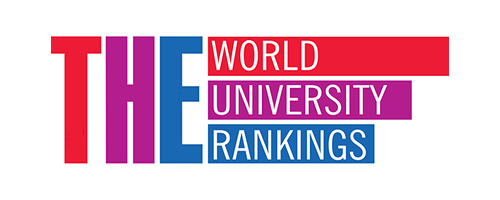
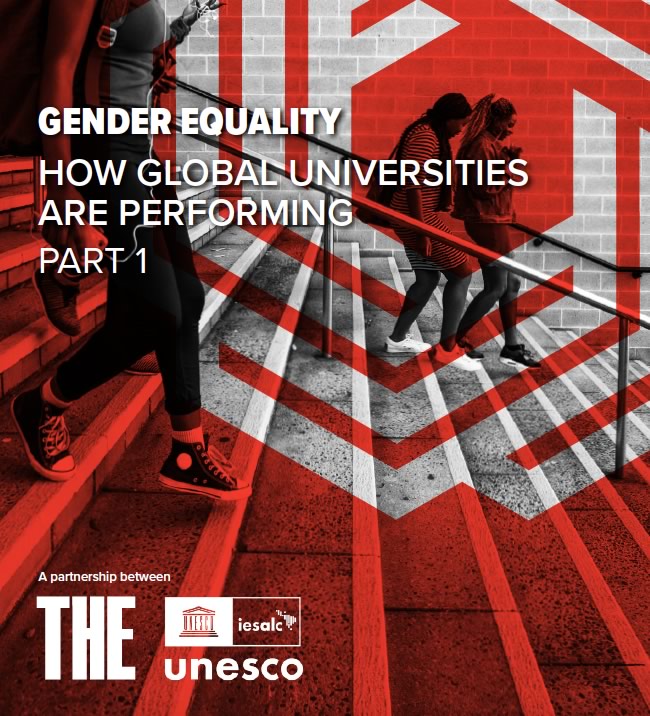
London, March 08, 2022 — “Gender equality has come a long way since International Women’s Day was founded 111 years ago. In many ways, universities have been a positive force in this journey,” says a Times Higher Education report published today.
THE’s new data-led report marking International Women’s Day 2022, ‘Gender Equality: How Global Universities are Performing,’ examines whether higher education is setting a leading example for other industries. One of the key findings is that most global universities have various policies and services that support women’s advancement.
Times Higher Education has also published its annual list of the world’s top universities led by women. The data show that the share of female Vice-chancellors in the World University Rankings top 200 has surpassed 20 percent for the first time.
• Top universities led by women in THE World University Rankings top 200
Order — University — Country — Vice-chancellor
Source: Times Higher Education
|GlobalGiants.Com|
Edited & Posted by the Editor | 11:38 AM | View the original post
Fulbright Top Producing Institutions highlight the Fulbright Program’s substantial institutional diversity and impact on American communities.
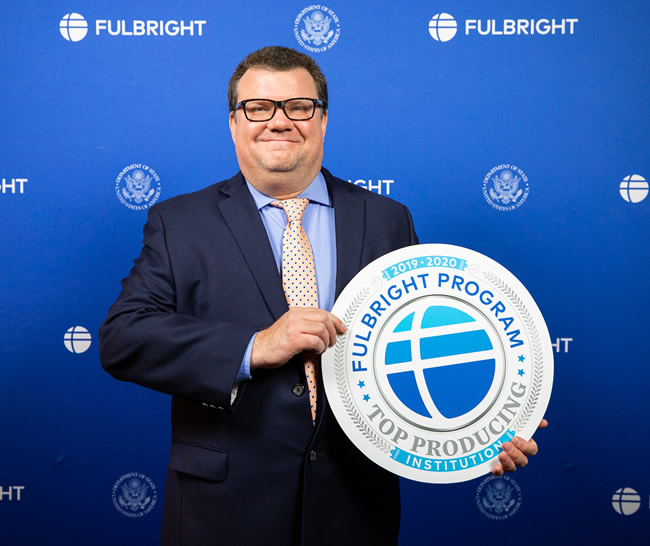
Photo: The Fulbright Program honored their 2019-2020 Top Producing Institutions. [File Photo]
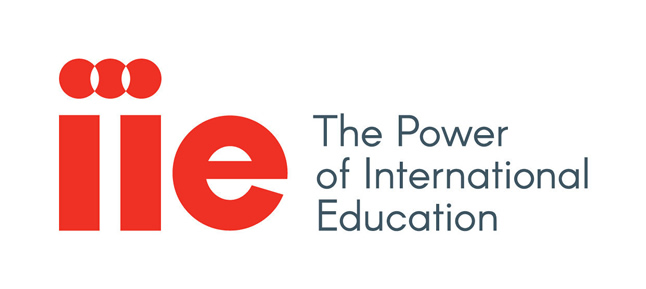
WASHINGTON, Feb. 28, 2022 — The U.S. Department of State, in collaboration with the Institute of International Education (IIE), has released lists of more than 125 U.S. higher education institutions that sent the most Fulbright U.S. Students and U.S. Scholars abroad in the 2021-2022 academic year.
Topping this year’s lists of Research, Master’s, Bachelor’s, and Special-focus four-year institutions that sent the most Fulbright U.S. students abroad are Brown University (R.I.), University of North Georgia (G.A.), CUNY Hunter College (N.Y.), Bowdoin College (M.E.), and the California Institute of the Arts (C.A.).
The University of Illinois at Urbana-Champaign (I.L.), the State University of New York at New Paltz (N.Y.), and Middlebury College (V.T.) sent the most Fulbright U.S. Scholars in the Research, Master’s, and Bachelor’s degree categories.
Fulbright Students are recent college graduates, graduate students, and early career professionals. In comparison, Fulbright Scholars are faculty, researchers, administrators, and established professionals.
“We congratulate the colleges and universities we are honoring as 2021-2022 Fulbright Top Producing Institutions and are especially delighted to celebrate the institutions recognized as Fulbright Top Producers for the first time. These institutions reflect the geographic and institutional diversity of higher education in the United States, and include Minority-Serving Institutions,” said Ethan Rosenzweig, Deputy Assistant Secretary of State for Academic Programs in the U.S. Department of State’s Bureau of Educational and Cultural Affairs. “We thank the leadership of these institutions for supporting their faculty advisors and administrators, who are instrumental in guiding their students through the Fulbright application process. We also commend their support for their faculty and administrators who pursue Fulbright awards. Consequently, these institutions benefit from new, global perspectives and new international collaborations, positively impacting local and global communities. As a result, Fulbright U.S. Scholars and Fulbright U.S. Students have life-changing experiences that continue to pay dividends both professionally and personally throughout their careers.”
The Fulbright Program is a United States Cultural Exchange Program to improve intercultural relations between the American people and other countries through exchanging persons, knowledge, and skills. Competitively-selected American citizens, including students, scholars, teachers, professionals, scientists, and artists, may receive grants to study, conduct research, teach, or exercise their talents abroad. Likewise, citizens of other countries may qualify to do the same in the United States.
Source: Institute of International Education
|GlobalGiants.Com|
Edited & Posted by the Editor | 10:15 AM | View the original post
- New $23 M Series D funding to make every research paper ever written accessible will expedite the speed of scientific discovery and medical breakthroughs worldwide.
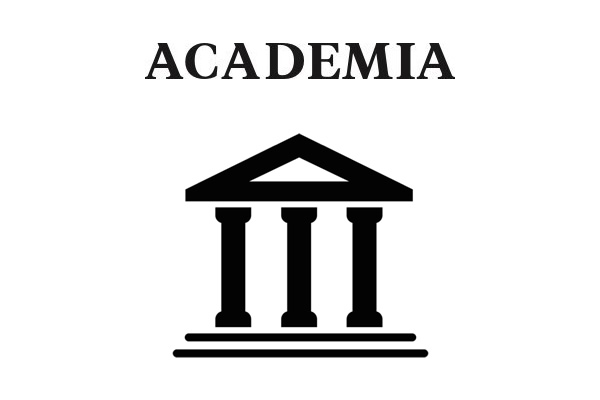
SAN FRANCISCO, February 25, 2022 — Academia.edu, the academic world’s platform for sharing research papers, has grown to 175 million users and is nearing half of the world’s academic research content. With around 100 million articles written since the 1600s, Academia aims to make every research paper ever written freely available on the internet. This growth has attracted $23 million in Series D funding led by Tencent, raising the total investment to $63 million. True Ventures and Greyrock Investments also participated in the financing round. With this new funding, the company aims to allow academics to be peer-reviewed and published in journals hosted on the Academia platform.
“What started as a personal project to share my philosophy research now provides more than fifteen times the amount of content than the number of books published each year - that inspires me,” said Dr. Richard Price, founder and CEO. Dr. Price is a former Oxford University academic and serial entrepreneur. “I thank our investors for continuing to back the company and its journey from the ivory towers to the information superhighway,” he added.
What Spotify means for podcasters, SoundCloud for musicians, Etsy for artists, and YouTube for content creators, Academia is inspiring the world’s academics to have their work read and cited. Academia adds 30,000-60,000 papers each day and has 28 million monthly visitors. Academia’s algorithms make about 20 million paper recommendations a day, connecting users to content from 42 percent of the world’s faculty in over 16,000 universities, including Oxford, MIT, Cal-Berkeley, and NYU.
Across physics, chemistry, biology, health sciences, ecology, earth sciences, cognitive science, mathematics, and computer science, teachers, doctors, business people, and engineers can access Academia’s wealth of current and historical content as well as get recommendations, enable citations, and publish their work to a global audience.
“Academia has shown that the academic world not only wants to share its research freely but also that it’s possible to build a new type of media business around this community and content,” said Dr. Ling Ge, Chief European Representative at Tencent. “Readily accessible research papers will expedite the speed of scientific discovery and medical breakthroughs around the world,” he added.
Source: Academia.edu
|GlobalGiants.Com|
[ Corresponding Website of the Editor: https://surenderhastir.academia.edu/ ]
Edited & Posted by the Editor | 8:59 AM | View the original post
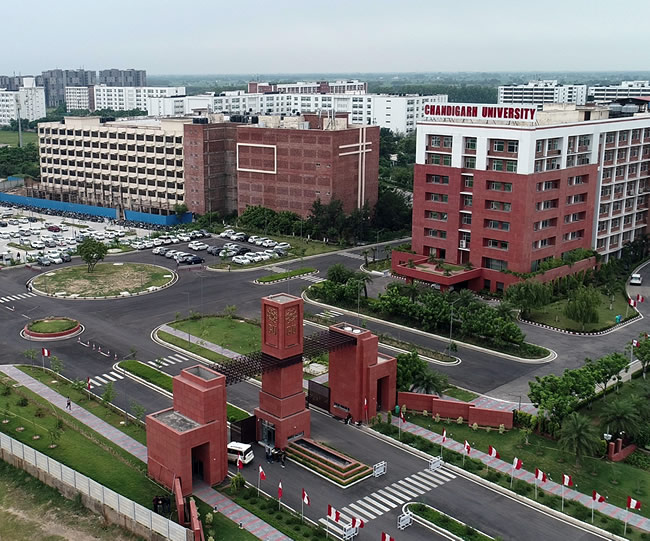
Photo: Chandigarh University Campus.
CHANDIGARH, India, Feb. 22, 2022 — Chandigarh University has received accreditation from the National Board of Accreditation (NBA) for all its Engineering and MBA programs. That makes it the only university in the entire country to have NAAC A+ and NBA accreditation.
Thus, Chandigarh University’s all engineering courses have become NBA accredited. These courses include Mechanical Engineering, Electrical Engineering, Civil Engineering, Electronics & Communications Engineering, Aerospace Engineering, Computer Science Engineering, Information Technology Engineering, and Chemical Engineering, besides MBA courses.
The institution has positioned itself amongst India’s elite and prestigious higher education institutions. It has already been awarded an A+ grade by the National Assessment and Accreditation Council (NAAC). In addition, it is Asia’s youngest university to feature in the QS Ranking 2021.
The NBA accreditation validates quality standards of the engineering and MBA courses. It ensures that the courses have met stringent quality standards and provide the best knowledge, skill, and attitude.
NBA’s membership of the Washington Accord brings the value of the courses offered by Chandigarh University at par with that of other countries that are members of this accord. Besides, the students of Chandigarh University pursuing engineering and MBA would be eligible to practice in or go for higher education in other countries, which are signatory to the Washington Accord. It would encourage and ease the mobility of engineering graduates and MBA professionals at the international level.
Speaking on the NBA accreditation, Mr. S.S. Sandhu, Chancellor, Chandigarh University, said, “It fills me with pride to note that Chandigarh University has become the only university in the entire country with NAAC A+ accreditation and NBA accreditation. The credit for this huge success goes to all the stakeholders, including students, faculty, alumni, and industry, who have contributed through their efforts to make this institution a Centre-of-Excellence in Higher Education, matching the global standards.”
Source: Chandigarh University
|GlobalGiants.Com|
Edited & Posted by the Editor | 6:12 AM | View the original post
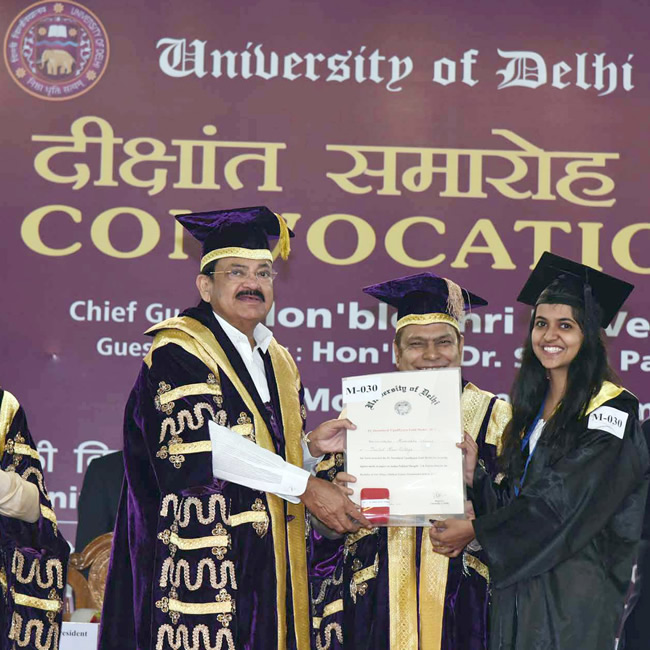
Photo: The Vice President of India, M. Venkaiah Naidu, presented the Degrees and Medals to the Students at the 95th Annual Convocation of the University of Delhi in Delhi on November 19, 2018. [File Photo]
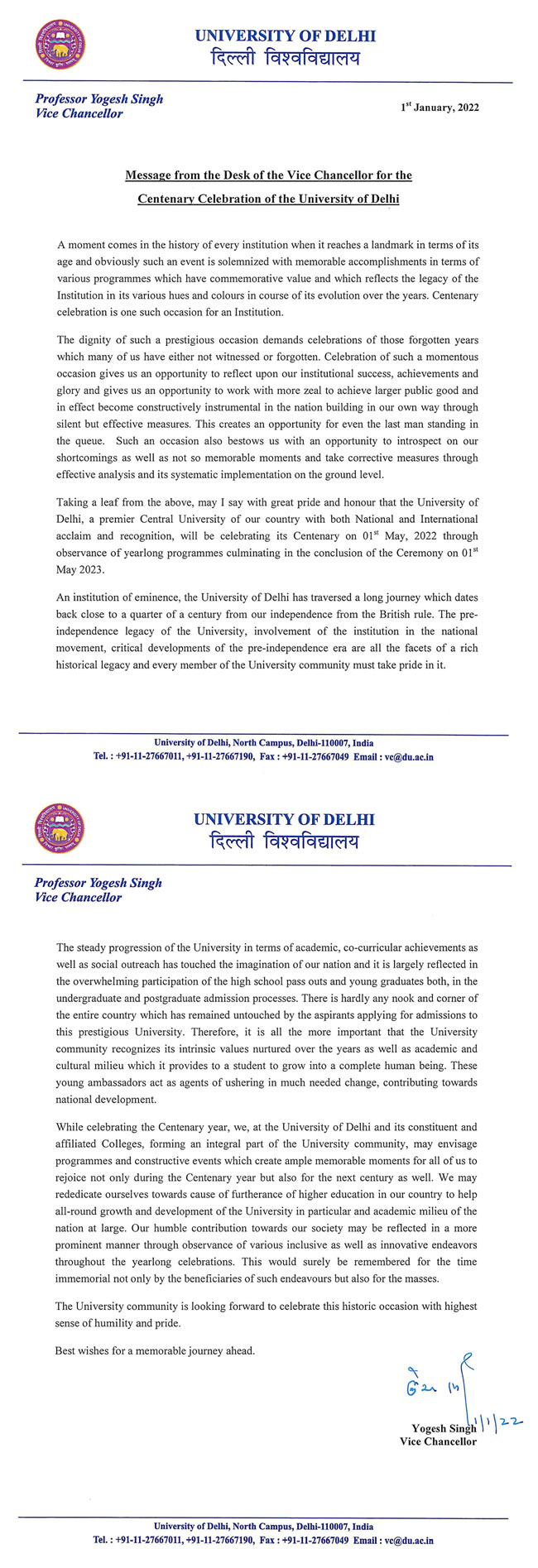
New Delhi, February 17 (PTI) — Colleges in the city reopened on Thursday after being shut for almost two years due to the COVID-19 pandemic, with students saying they are excited to be back on campus.
The Vishwavidyalaya Metro Station, near the Delhi University, was jampacked as many students made their way to colleges on the north campus.
Gajendra Mohan Thakur, a 26-year-old Campus Law Centre student, said, “I am excited to go back to the campus. The university was shut for around two years. The online mode of study was not efficient enough to substitute the offline mode of education. It is a time to reclaim our lost years.”
Delhi University colleges were closed in March 2020 following the outbreak of the coronavirus infection.
There have been drastic changes in students’ lives, with particular emphasis on online classes. Now, lives are coming back on track. “We students are super excited to join offline classes as it provides a whole new bunch of opportunities and exposure to shape our future,” Kalyani Harbola, a first-year student, said.
“Offline classes also provide a better platform for student-teacher interaction and better learning,” Harbola added.
Student bodies held protests earlier this month, demanding the reopening of the campus. The decision to reopen the institutions came after a decline in the number of COVID-19 cases in the national capital.
|GlobalGiants.Com|
Edited & Posted by the Editor | 5:13 AM | View the original post
- First Grants from Hewlett Foundation and Omidyar Network to Harvard, Howard, Johns Hopkins Universities, MIT, and Santa Fe Institute; Ford and Open Society Foundations to Fund More Centers around the World Later in 2022.
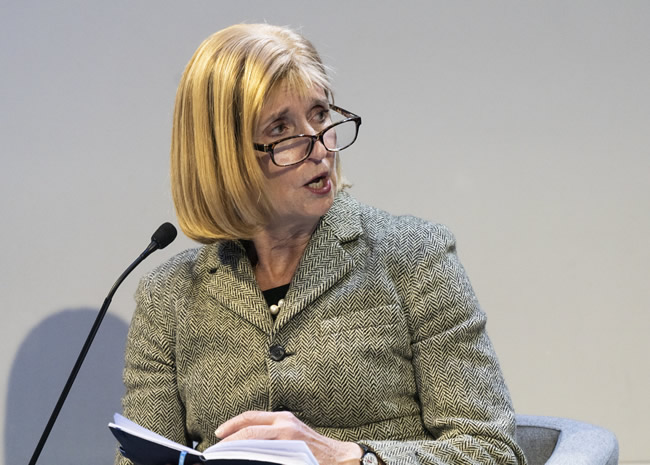
Photo: Paula J. Dobriansky, Senior Fellow, Future of Diplomacy Project, Belfer Center for Science and International Affairs, Harvard Kennedy School of Government, USA speaking in The Great Indo-Pacific Race session at the World Economic Forum Annual Meeting 2020 in Davos-Klosters, Switzerland, January 22, 2020. Image credit & copyright © World Economic Forum/Faruk Pinjo.
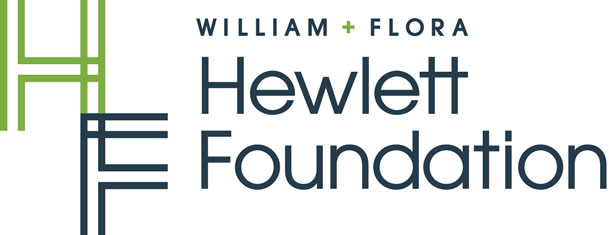
MENLO PARK, Calif., Feb. 16, 2022 — Today, the William and Flora Hewlett Foundation and Omidyar Network announced more than $40 million in grants to support the establishment of multidisciplinary academic centers dedicated to reimagining the relationships among markets, governments, and people. When conventional economic prescriptions are failing, and democratic governance is getting threatened worldwide, scholars at leading academic institutions will investigate how economies should work in the 21st century and the aims they should serve.
The Hewlett Foundation will fund policy and research centers at Harvard Kennedy School, Howard University, Massachusetts Institute of Technology (MIT), and Johns Hopkins University.
The Ford Foundation is also committed to making additional grants to institutions in Africa, Asia, and Latin America, in 2022. In addition, the Open Society Foundations are exploring how to best support heterodox economic thinking through the Open Society University Network, a global partnership of educational institutions that integrates learning and the advancement of knowledge.
This announcement marks the beginning of a significant philanthropic effort to fund higher-educational institutions to help rethink and replace neoliberalism and its assumptions about the relationship between the economy and society. For more than 40 years, neoliberalism has dominated economic and political debates, both in the U.S. and globally. With its free-market fundamentalism and growth-at-all-costs approach to economic and social policy. Neoliberalism offers no solutions for the biggest challenges of our time, such as the climate crisis, systemic racism, and rampant wealth inequality — and in many ways, it has made those problems even worse. The new academic centers will contribute to the growing movement to articulate a better approach to political economy and find systemic solutions that build a more equitable and resilient society based on a new set of economic values. Hewlett Foundation explained.
“Neoliberalism’s anti-government, free-market fundamentalism is not suited for today’s economy and society. But what comes next is still not fully developed,” said Larry Kramer, president of the William and Flora Hewlett Foundation, which launched its Economy and Society Initiative in December 2020 to focus on identifying a successor to neoliberalism. “This joint effort reflects our shared interest in replacing outdated 20th-century thinking — individualistic versus collectivist, central control versus free markets, liberty versus equality, and the like — with new ideas that can lead to broader economic justice and prosperity for people around the world. It is a first step to support forward-thinking scholars, students, and thought leaders who can break out of a patently failing neoliberal paradigm with its ossified left-right divides. They can help shape a bold new vision for what people should expect from their governments and economies.”
“In the decades since economists like Milton Friedman and Friedrich Hayek first developed their economic theories, our understanding of the world and the behavior that drives it has exponentially improved. Collectively, we have made great gains in understanding the cause and effects of economic inequality; created vast online social networks that operate from pocket-sized computers. Sequenced the human genome; and achieved a much more comprehensive understanding of evolutionary biology and the fundamentally cooperative nature of human beings. Yet the economic models and assumptions utilized by many academics, economists, and policymakers haven’t remotely kept pace with these advancements,” said Omidyar Network CEO Mike Kubzansky. “Now, more than ever, it is imperative that we prioritize interdisciplinary scholarship to update our knowledge of complexity to understand better our economy — the ultimate complex, dynamic system. We are pleased to join the Hewlett Foundation and our other partners in supporting a new cadre of academic leaders and a new epoch in the study of economics and its intersection with a diverse range of fields. Together, we can change the ideas that will change the world.”
The academic centers will all pursue ideas and solutions contributing to the movement to rethink neoliberalism. In addition to developing new research bodies and collaborating with other research institutions through a multidisciplinary approach, the centers will host convenings to engage scholars, policymakers, and other stakeholders to explore new ways of thinking about our economy. The academic centers established with the grants announced today will focus on the following:
Harvard Kennedy School’s Reimagining the Economy Project will focus on reshaping economic narratives by taking a more active and empirical economic approach to analyzing data from local labor markets to understand the implications of policymaking on local economies.
Howard University’s Center for an Equitable and Sustainable Society will study the causes and effects of racial and economic inequities to determine solutions that can adequately address those issues.
Johns Hopkins University’s Center for Economy and Society will explore the benefits of past versions of liberalism and foster debate between current versions of liberalism to mine for solutions that may remedy neoliberalism’s shortcomings.
The MIT Economics Department’s Shaping the Future of Work Program will analyze forces contributing to the erosion of job quality and labor market opportunity for workers without college degrees.
The Santa Fe Institute will use mathematical and computational theory to study the emergence of alternative political economies, focusing on the interplay between different forms of inequality, economic and market institutions, intelligent technologies, and cultures of invention and innovation.
The grants announced today from the Hewlett Foundation and Omidyar Network will allow the academic centers to begin staffing up and building out their research programs, partnerships, and course offerings. Later this year, the Ford Foundation and Open Society Foundations will announce grants to fund additional centers at institutions in the Global South and worldwide.
Source: The William and Flora Hewlett Foundation
|GlobalGiants.Com|
Edited & Posted by the Editor | 4:22 AM | View the original post
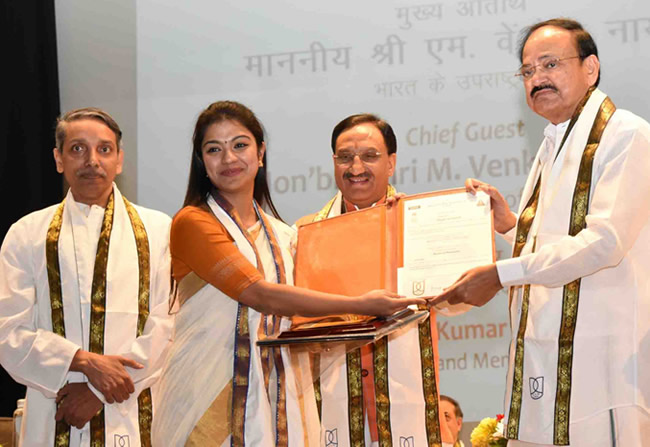
Photo:(Left to Right) Mr. Jagadesh Kumar, Vice-Chancellor, Jawaharlal Nehru University, Education Minister Dr. Ramesh Pokhriyal Nishank, and the Vice President, M. Venkaiah Naidu presenting the degrees to students, at the 3rd annual convocation of Jawaharlal Nehru University, in New Delhi on November 11, 2019. [File Photo]

New Delhi, February 4 — Jawaharlal Nehru University (JNU) Vice-Chancellor Mr. M. Jagadesh Kumar has been appointed as Chairman of the University Grants Commission (UGC), officials said on Friday.
Kumar is currently holding the charge as acting VC of JNU after his tenure expired last year.
“Jagadesh Kumar has been appointed the new UGC chairman,” a senior official of the Ministry of Education (MoE) confirmed.
The post of the UGC chairman fell vacant on December 7 after Prof D P Singh, who had taken charge in 2018, resigned.
Mamidala Jagadesh Kumar is an academician, administrator, and author who has been the acting Vice-Chancellor of Jawaharlal Nehru University (JNU) since January 2021.
The University Grants Commission of India (UGC India) is a statutory body that coordinates, determines, and maintains higher education standards.
UGC provides Recognition to Universities and maintains the Recognized Universities’ list. Thus, any institution which is not a University per Sections 2(f) & 22(1) of the University Grants Commission Act, cannot confer degrees. Further, Section 22(3) of the University Grants Commission Act specifies the degrees which the universities can award.
Sources: PIB, PTI, UGC
|GlobalGiants.Com|
• UGC notifies Rights of Women in Higher Education Institutions •

New Delhi, February 10, 2022 — The Minister of State for Education, Dr. Subhas Sarkar, today presented the following written statement in the Rajya Sabha (Upper House of Parliament):
“University Grants Commission (UGC) has notified the University Grants Commission (Prevention, Prohibition, and Redressal of sexual harassment of women employees and students in higher educational institutions) Regulations.
” University Grants Commission (UGC) has also issued an advisory to all Universities to conduct gender awareness programs to sensitize the officials, staff, students, and employees about the provisions of the Regulations and the Relevant Act.”
Source: Ministry of Education, Government of India
|GlobalGiants.Com|
• Colleges, Universities can Re-open for Offline Classes, Exams following Covid Protocols •

The University Grants Commission (UGC), India’s higher education regulatory body, has directed the colleges and universities to re-open campuses for classes and examinations offline, online, or in blended mode following Covid protocols.
New Delhi, February 11, 2022 — The University Grants Commission (UGC) has issued the following instructions to all Vice-Chancellors on re-opening of Universities and Colleges Post Lockdown:
“Keeping in view the situation of COVID-19 in their respective region, the HEI’s may open campuses.
“HEI’s may conduct classes and examinations in offline/online/blended mode following COVID Appropriate Behaviors and necessary protocols/guidelines/directions/advisories issued by the Central/State Governments or competent authorities from time to time.”
Source: UGC
|GlobalGiants.Com|
• UGC has issued the following UPDATE concerning UGC-NET •
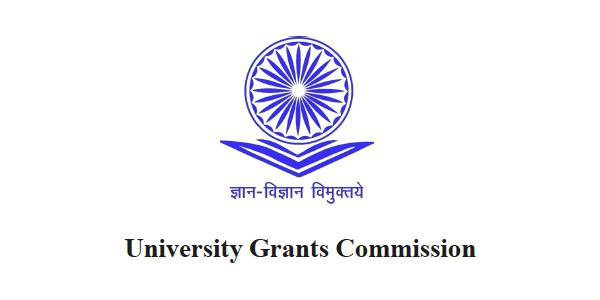
February 16, 2022
Due to the COVID-19 pandemic, the conduct of December-2020 UGC-NET could not occur. Consequently, the UGC-NET of December 2020 and June 2021 Cycles were conducted together by National Testing Agency (NTA) between November 20, 2021, and January 5, 2022.
The National Testing Agency (NTA) conducted the UGC-NET in 81 subjects in 837 centers spread across 239 cities. More than 12 lakh candidates registered for UGC-NET. The processing of the results is underway. The Chairman, UGC, Prof. M. Jagadesh Kumar, said that UGC is working closely with National Testing Agency (NTA) and is making all efforts to declare the UGC-NET results in a day or two. He wished the candidates all the best.
— Secretary, UGC
Source: UGC
[The National Eligibility Test (NET), also known as UGC NET or NTA-UGC-NET, is the examination for determining the eligibility for the post of assistant professor or Junior Research Fellowship award in Indian universities and colleges. National Testing Agency (NTA) conducts the test on behalf of the University Grants Commission.]
|GlobalGiants.Com|
Edited & Posted by the Editor | 8:21 AM | View the original post

New Delhi, January 31, 2022 — University Grants Commission (UGC), India, has invited feedback from all stakeholders on the National Higher Education Qualification Framework (NHEQF) it has drafted. The input should reach UGC latest by February 13, 2022.
According to the UGC communication, the National Education Policy (NEP) 2020 stipulates that UGC would formulate a National Higher Education Qualification Framework (NHEQF) in sync with the National Skills Qualifications Framework (NSQF). The National Higher Education Qualification Framework (NHEQF) will ease the integration of vocational education into higher education and prescribe the facilitative norms for issues such as credit transfer and equivalence. Furthermore, NHEQF would, in terms of such learning outcomes, provide a refined description of the higher education qualifications leading to a degree/diploma/certificate.
Source: University Grants Commission (UGC)
|GlobalGiants.Com|
Suggestions are invited from all stakeholders on the Draft National Higher Education Qualification Framework(NHEQF) developed as part of NEP 2020 recommendations.
— UGC INDIA (@ugc_india) January 30, 2022
Please send your suggestions on nepnheqf@gmail.com by 13th February, 2022https://t.co/8ff778CWiL pic.twitter.com/RpwDKHfkgQ
Edited & Posted by the Editor | 3:46 AM | View the original post
- More partner schools benefit from being up-to-date with current higher education issues and applying to UK universities, plus invites to University of Essex events and support throughout the year.
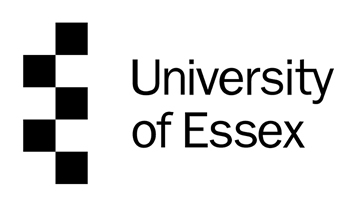
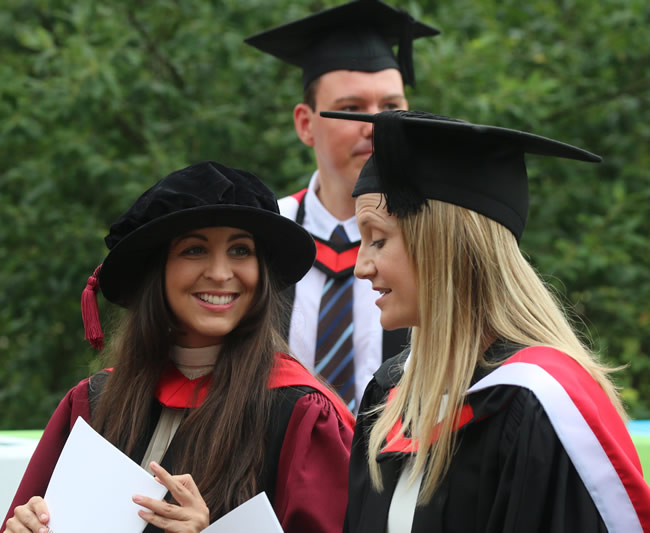
Photo: Graduation at the University of Essex. Image provided by & copyright © University of Essex.
NEW DELHI, January 27, 2022 — The University of Essex, a dedicated UK-based public research university that supports the overall development of students, is extending its School Membership Scheme in India to offer structured support and engagement with more schools.
The University’s School Membership Scheme creates an exclusive network of schools and colleges worldwide. The University of Essex offers focused support to students, teachers, and counselors based at member schools.
Each year, the University of Essex works closely with the partner schools to ensure the members are up-to-date with current higher education issues. It provides extra support and advice on undergraduate UCAS (Universities and Colleges Admissions Service), Clearing cut-offs, scholarships, scholarships, personal statement writing guides, and revision guidance. In addition, partner schools and colleges receive invitations to upcoming activities they can engage with at the University.
In addition, there are priority visits from the University of Essex’s India-based Student Recruitment team, bespoke virtual/on-campus visits for school counselors or academic staff, and regular newsletters for members.
Member schools get an invitation to the University of Essex’s Annual Teachers Conference, which provides unique networking and Continuing Professional Development (CPD) opportunities both in-person and virtually. Essex also offers travel bursaries to travel to the University’s Colchester and Southend Campuses.
There is no cost associated with membership. The participating schools are only required to actively participate in the scheme, attend member events and engage in the network activities.
Schools actively participating in the program include:
- Delhi Public School, Gurgaon
- Delhi Public School, Vasant Kunj, New Delhi
- St. John’s High School, Chandigarh, and
- Stepping Stones School, Chandigarh.
Sandeep Sharma, Director of Student Recruitment and Partnerships - South Asia at Essex, said, “The School Membership Scheme is a critical element of our work to expand engagement with schools and colleges in India. The membership offers them opportunities for knowledge exchange, guest lectures from leading academics at Essex, sponsorship support for events, and academic scholarships for their students.
“By engaging early and actively, we believe we will be able to add value to the counseling support offered by schools while helping their students make the best choices regarding their undergraduate study overseas.”
“We are looking to welcome 15 more schools each year over the next two to three years through our scheme, and we’re looking forward to working with a growing number of partners in India.”
Founded in 1964, the University of Essex is one of the UK’s leading universities. The University maintains three campuses at Colchester, Southend, and Loughton. Essex has three faculties that deliver excellence in teaching and research: the Faculty of Arts and Humanities, Science and Health, and the Faculty of Social Sciences. It has close to 1,000 active researchers and 17,000 students from over 140 countries, with an alumni strength of over 100,000. It was named the University of the Year at the Times Higher Education Awards 2018 and in the top 25 for research quality in The Times and Sunday Times Good University Guide 2022.
Source: University of Essex
|GlobalGiants.Com|
Edited & Posted by the Editor | 4:16 AM | View the original post
- Advanced economies may have hit “peak higher education.”
- Disruption from temporary remote learning may be just the tip of the iceberg
- An agile approach to business reinvention is essential for universities to survive
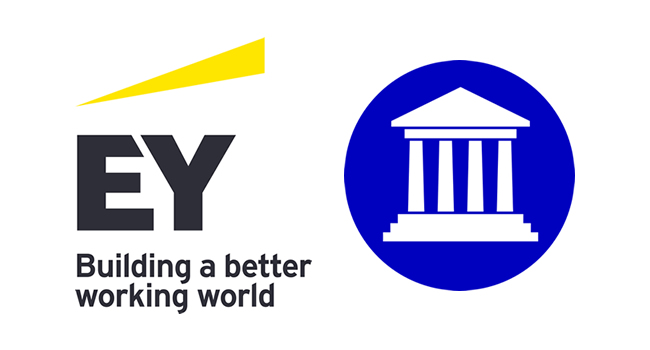
LONDON, Jan. 27, 2022 — A new EY report, “Are universities of the past still the future?” argues that universities in advanced economies face several existential issues in the wake of the COVID-19 pandemic.
The report derives its conclusions from EY analysis about the future of the higher education sector and 29 interviews with university leaders from the US, UK, India, Singapore, and Australia. The report finds that universities quickly need to adapt to a new reality due to demographic shifts, geopolitical challenges, changing workplace demands, and high student expectations for a quality digital experience.
If they’re not willing to rethink their purpose and how they deliver value, some of the challenges thrown up by the COVID-19 pandemic could rapidly develop into existential threats. So it is time to start asking difficult questions, challenge the status quo, and look at the opportunities the pandemic has created to rethink how and where higher education is delivered - and to whom.”
The report, published on the International Day of Education, recommends that universities take a “future-back” approach, looking ahead to 2030 to understand how five bold scenarios could require a radical transformation of their operating models if they are to remain competitive:
What if the cost of learning is driven down to zero? — The advent of widespread digital and distance learning is already radically reimagining the classroom as we know it. Universities must use digital learning experiences to augment what makes them unique and reinvent their learning delivery around that to meet the needs of tomorrow’s students and lifelong learners.
What if learning journeys are entirely flexible and customizable? — The power is shifting rapidly into the hands of the learner. Universities need to recognize this and provide students with personalized, flexible learning options.
What if higher education providers are accountable for results? — Universities have lost their monopoly on accreditation, and non-degree, lifelong-learning credentials are becoming mainstream. Universities have to prepare for a world where a location or brand reputation is less critical to learners than the measurable quality and effectiveness of their teaching and learning outcomes in helping learners reach their career and life aspirations.
What if commercialized research pays for itself? — Research is the lifeblood of universities, from deciding rankings to attracting the best minds to producing value for society. Still, it is costly and is heavily subsidized by tuition fee revenues. Instead, universities could shift to prioritize commercial, demand-driven research, collaborating more closely with industry and capital markets and then working with governments for better funding for non-commercial research of national or international value and significance.
What if technology could solve the global supply and demand mismatch? — Technology is helping those in developing countries to access higher education in new ways, allowing universities to expand their reach exponentially. As a result, western universities looking for new markets have a tremendous opportunity to partner with in-country providers to roll out sought-after, high-quality education in these growing markets, using technology to do so at scale and a price point affordable locally.
Catherine Friday, EY Global Education Leader, says:
“The COVID-19 pandemic exposed how far universities have to go when it comes to finding their place in the future of education and laid bare their over-reliance on on-campus learning and international students in shrinking domestic undergraduate markets. There is no going back to the way things were, and technology will continue to change the game across the higher education sector. So on this International Day of Education, universities need to start thinking and planning how they’re going to address the need for reinvention and fit into the future’s post-secondary and lifelong learning landscape.”
Source: EY
|GlobalGiants.Com|
Edited & Posted by the Editor | 2:14 PM | View the original post


New Delhi, January 17, 2022 — University Grants Commission organized an online workshop for Universities and Colleges on Intellectual Property Rights (IPR).
Smt. Neeta Prasad, Joint Secretary (ICC & Vig.) Department of Higher Education, Ministry of Education, Shri Rajendra Ratnoo, Joint Secretary, DPIIT & CGPDTM, Ministry of Commerce & Industry, and Prof. Rajnish Jain, Secretary, UGC, addressed the Inaugural Session.
Delivering the welcome address, Prof. Rajnish Jain, Secretary, UGC, highlighted the importance of IPR and its importance in the country’s image and its relevance in building the knowledge pool of the country and its legal aspects. He shed light on the historical part of India’s position as creator and innovator. He expressed hope in the day’s deliberations in creating awareness about IPR.
Delivering the Special Address, Smt. Neeta Prasad, Joint Secretary (ICC & Vig.) Department of Higher Education, Ministry of Education stressed the importance of Intellectual Property as the foundation of innovation, research, and creativity. She shared that necessary steps have been taken in India to create a robust innovation and IPR culture in the country, which has significantly improved the relevant innovation and IP numbers, be it the IP filing, IP grant, and IP disposals. However, despite all changes, India is behind many countries in terms of IPR. She stressed that the reason could be a lack of awareness in students for filing patents.
She shared about the Government’s initiative in the areas like the KAPILA program launched for IP literacy and awareness in October 2020, reducing the fee for filing the patent. She suggested that the way forward was proactively protecting knowledge and inventions by respective IPRs in India and other countries.
Shri Rajendra Ratnoo, Joint Secretary, DPIIT & CGPDTM, Ministry of Commerce & Industry, delivered the keynote address. He said there is a need to convert energy into synergy by coming together. He said that there was a need to collaborate instead of working in silos. Mr. Ratnoo further stressed the need for promoting innovation and creation in both art and science. He outlined the importance of partnership between industry, academia, and IPR registration.
The technical session followed the inaugural session, where IP experts gave an overview of the theme.
Dr. Usha Rao, Assistant Controller of Patents & Designs, presented a summary of Intellectual Property Rights. She provided an insight into the need and importance of IPR and the different types of IP and their governing bodies. Dr. Rao also shed light on the various acts and rules of IPR in India. She also discussed the multiple ways of filing the patent processes.
The second expert for the technical round was Shri Sukhdeep Singh, Assistant Controller of Patents & Designs. He addressed the various schemes and privileges for Educational Institutes in IPR. He concluded by stating that the way forward involved the establishment of IP management cells in Universities, having master trainers, and establishing Technology and Innovation Support Centers (TISCs) supported by the World Intellectual Property Organization (WIPO).
The webinar ended with the vote of thanks by Dr. Surender Singh, Additional Secretary UGC.
The online workshop discussed pertinent aspects of Intellectual Property Rights (IPR) for Higher Education Institutions (HEIs). It was an essential step towards making HEIs aware of IPR. Universities and colleges from all over India participated in it.
Source: Ministry of Education
|GlobalGiants.Com|
—The Editor is an Alumnus of the World Intellectual Property Organization (WIPO) Academy, Geneva, Switzerland.
Edited & Posted by the Editor | 6:51 AM | View the original post
 |
 |
